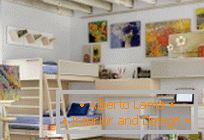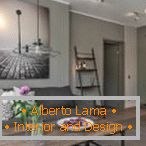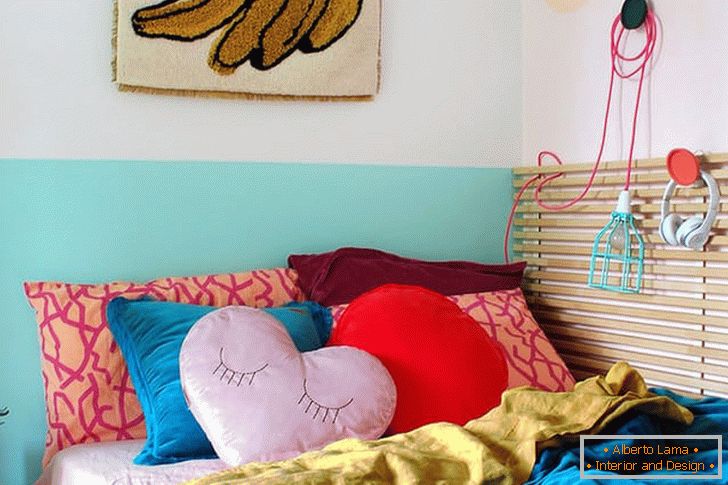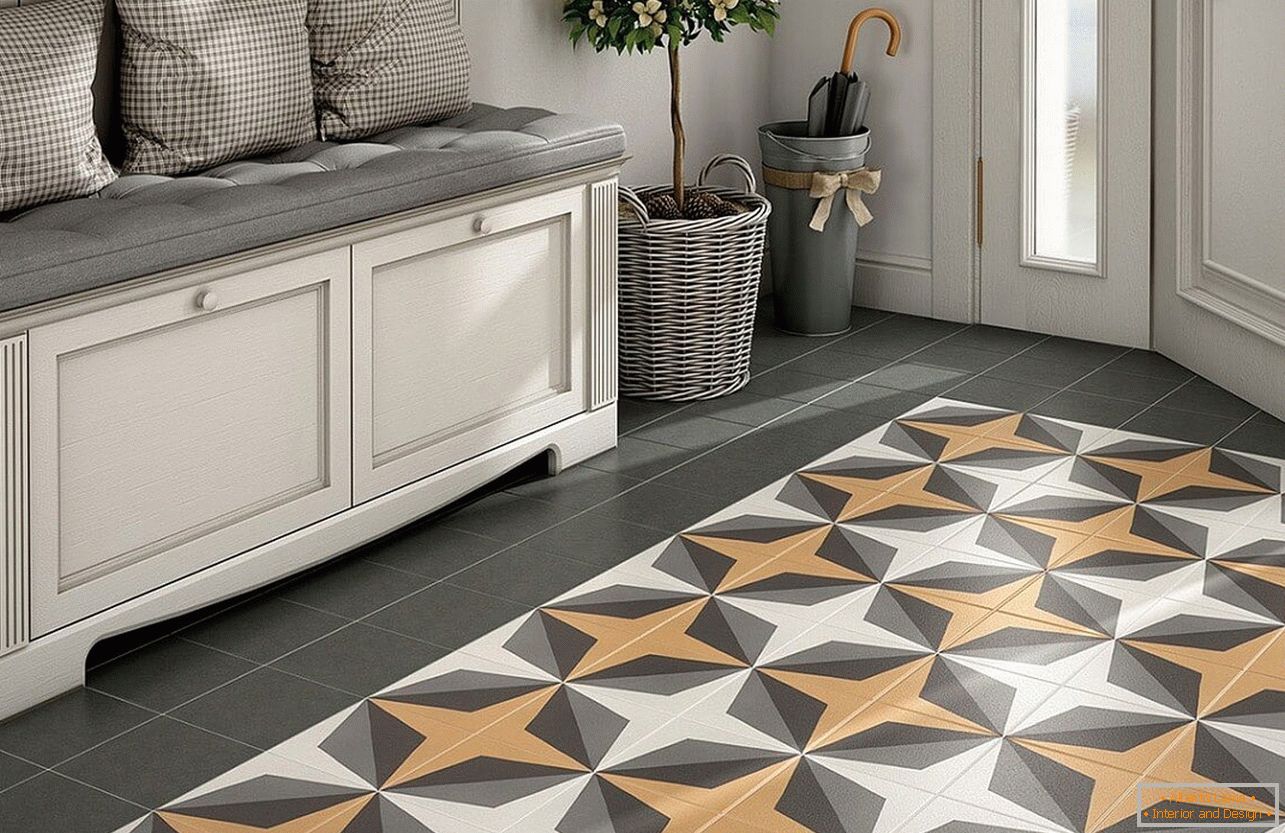
Qualitative and tastefully selected floor tiles for the corridor - a beautiful and practical cover, as the hall is a place where you have to face sand, dust and shoes on your heels every day. Tiles perfectly tolerate these loads, besides, it will create an unusual and non-standard interior design.
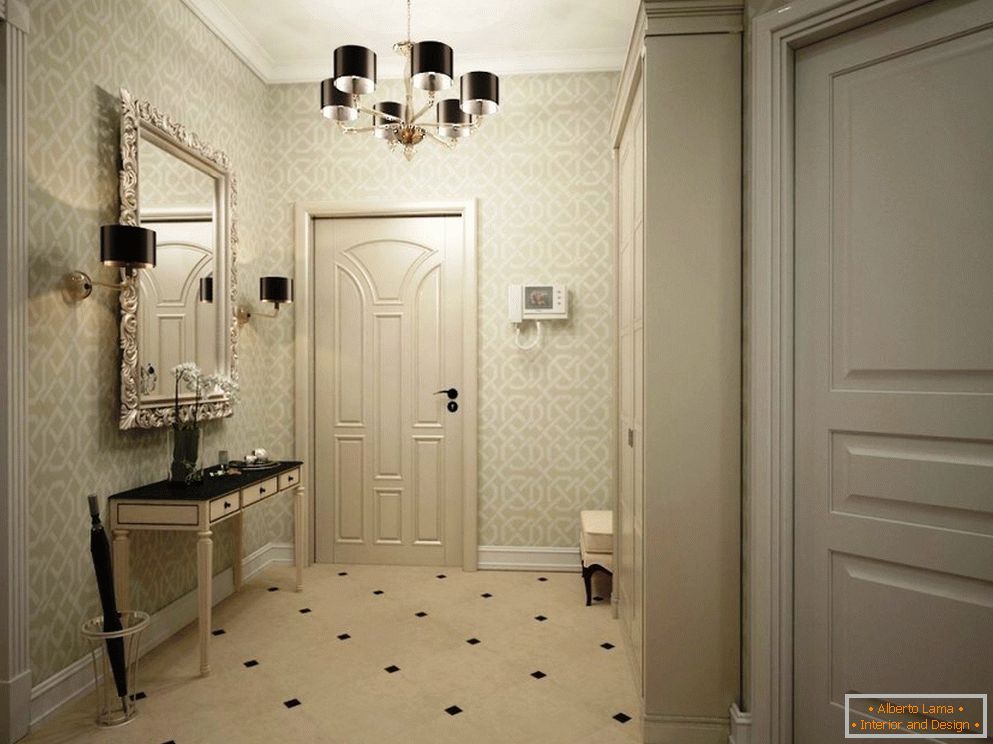
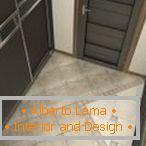
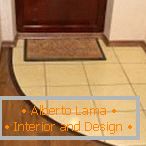
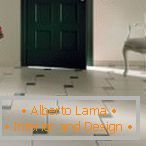
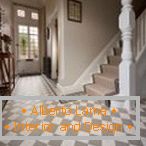
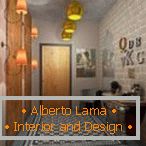
Resistance to aggressive substances
The floors in the corridor get dirty quickly, so the use of household chemicals can not be avoided. There is a special classification of coatings for susceptibility to chemically aggressive substances. In this case, the lettering is used. For example, tiles of category AA are acid resistant. The best option for rooms is material AB. The lowest resistance class to such media is O.
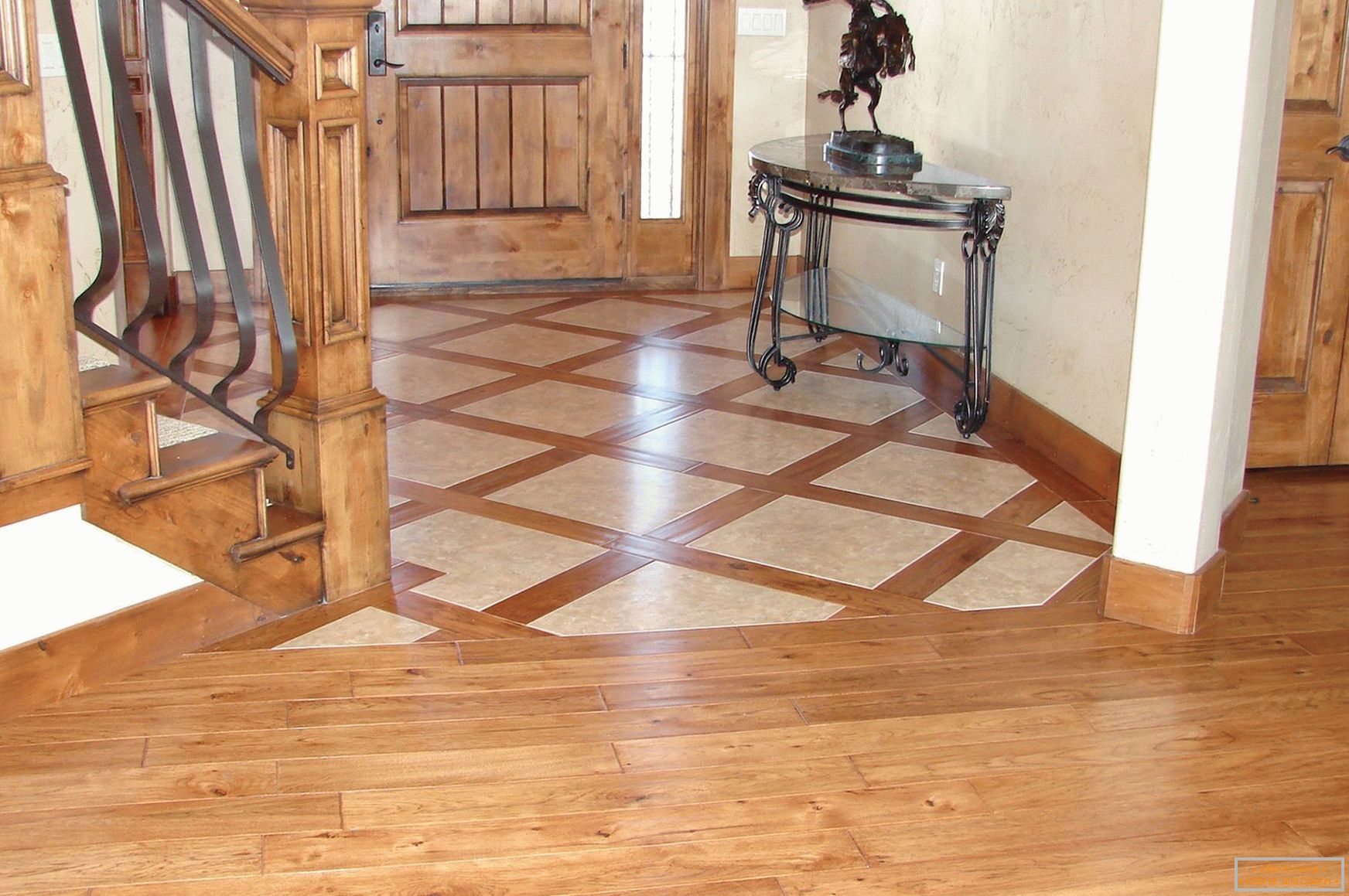
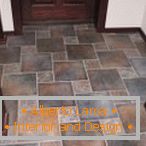
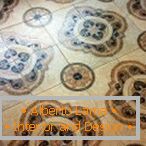
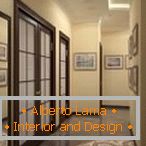
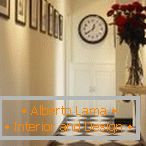
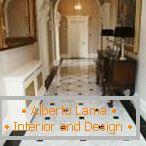
Coefficient of friction
This indicator means how much the coating will be slippery. If the room is actively used, the sliding tile will not be the best solution. The gloss wears off quickly, the coating dims. In addition, it is traumatic. A much better choice is a relief matte tile. Such material is practical in use and does not slip. The anti-skid indicator also has its own marking. For the corridor, the best materials are plate materials with the designations R10 or R11.
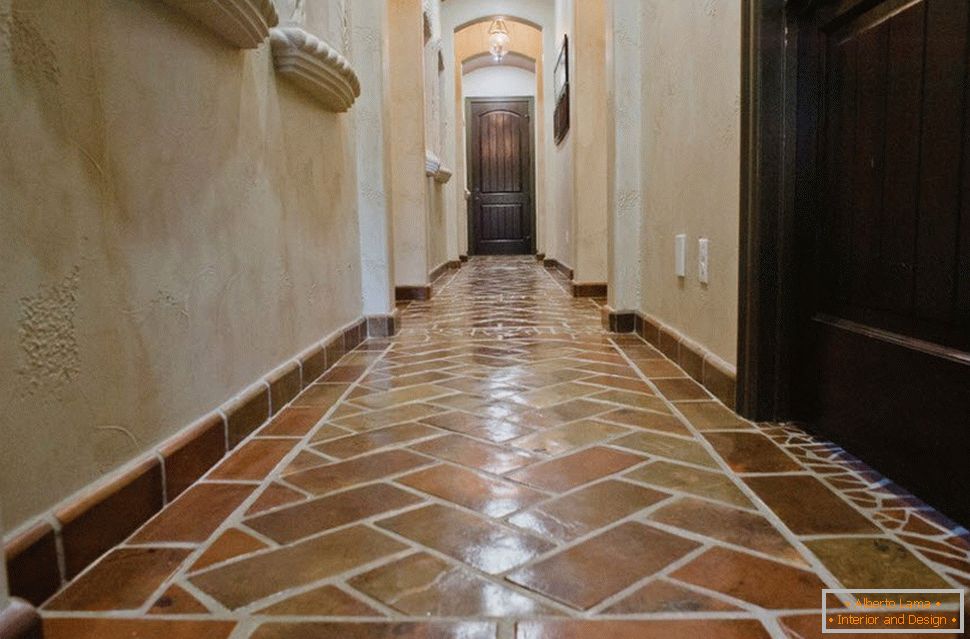
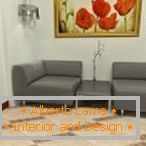
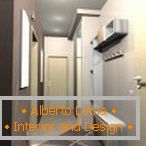
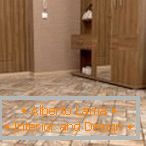
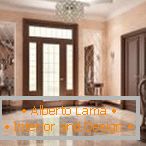
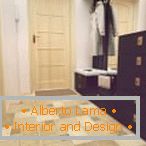
Moisture absorption
It is generally accepted that the level of moisture absorption of ceramics is zero. However, absolutely perfect materials do not exist. The maximum allowable moisture absorption level for tiles is 3%. To achieve good performance, manufacturing companies use a variety of techniques (for example, firing at high temperatures). The quality test is quite simple. The cleavage of a good material is smooth, with a reddish tinge. The rough color of the beige color means that the quality of the material is not high enough.
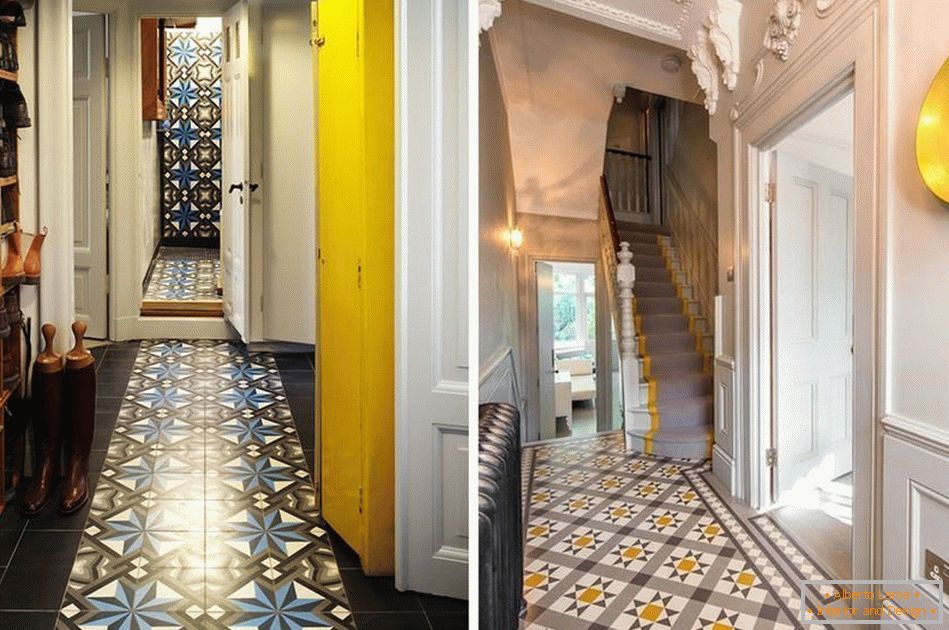
Practicality
This factor is no less important than those already listed. A rough surface, for example, is heavily soiled. The most practical is the tile of a dark shade, devoid of gloss. The floor in the hallway of tile with a polished or glazed surface looks spectacular and rich, but this surface is very slippery.
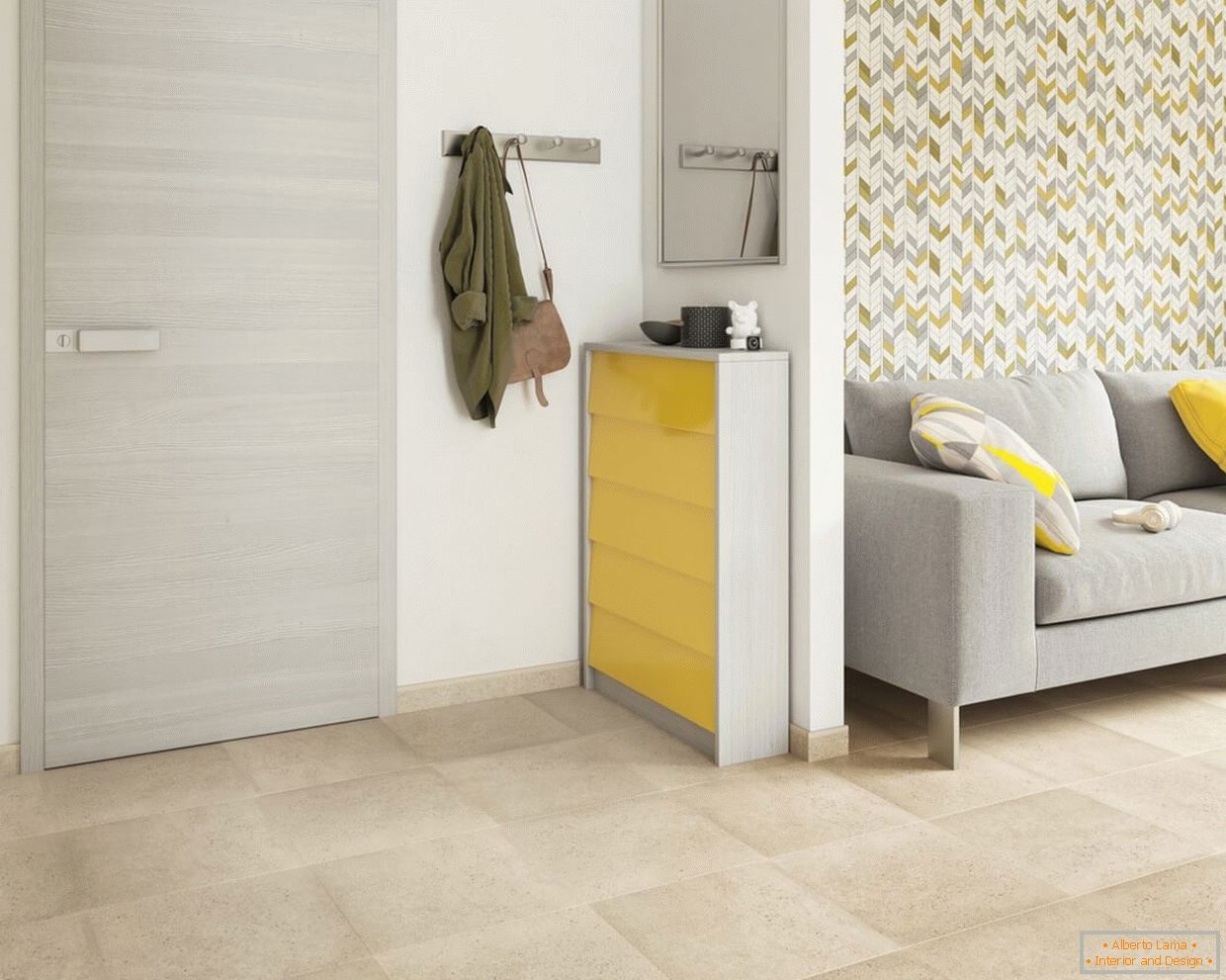
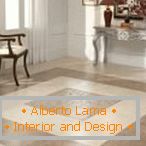
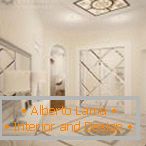
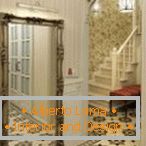
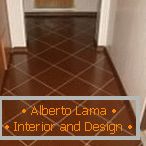
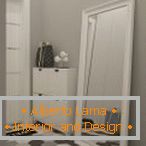
Types of floor tiles
Whatever option you choose, the set of requirements for flooring remains constant: practicality and safety. It is necessary that it is water resistant, resistant to wear and durability. This is important, because, near the threshold, the loads on such coverage will be significant. Consider the features of different types of tiles.
See also: Design of the hall in a private house with a staircase +75 photo 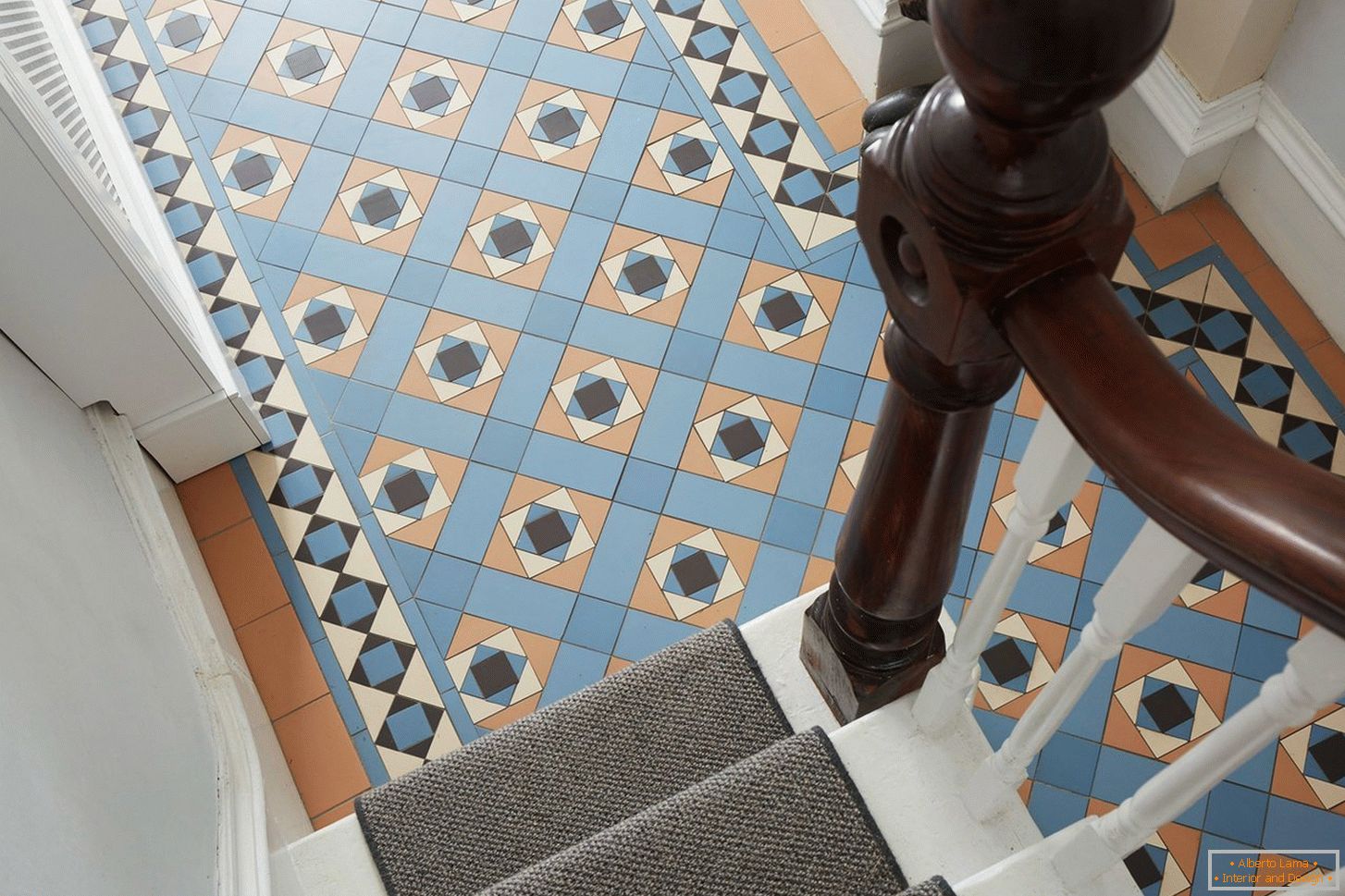
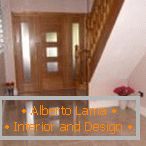
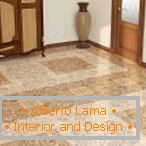
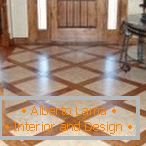
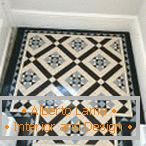
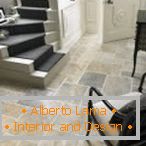
Ceramics
Кафельная плитка подходит для коридора идеально. Прежде всего, потому, что она длительное время сохраняет презентабельный вид, очень проста в уходе, требует минимума усилий при очистке или отмывании от грязи. Ceramics изготавливается из глины, она надолго сохраняет первоначальный оттенок и текстуру. В продаже имеется огромный выбор керамической плитки для пола, имитирующей дерево, поделочный камень, украшенной разнообразными узорами. Верхний слой может быть шершавым или гладким. Первый вариант для полов в прихожей больше подходит, поскольку покрытие не скользит.
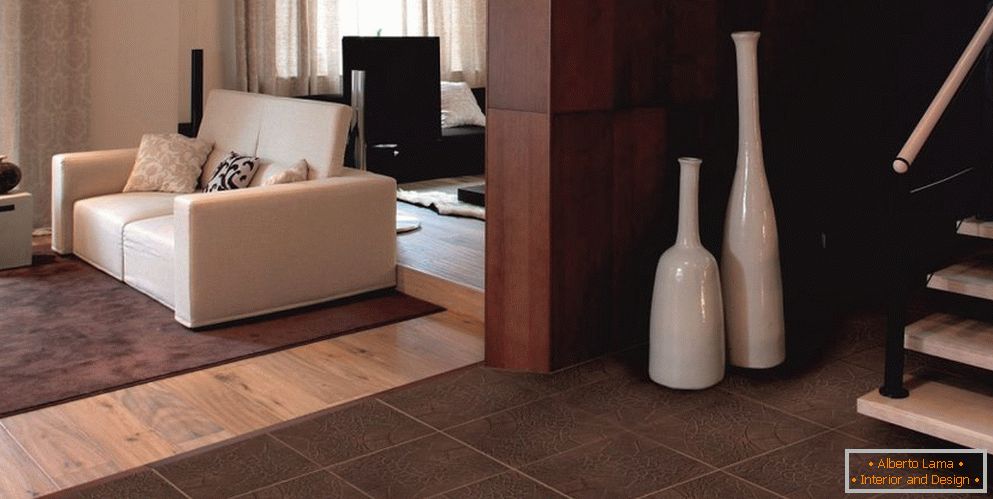
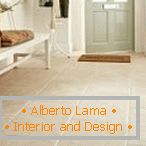
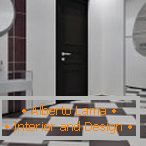
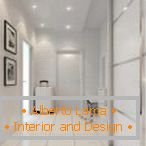
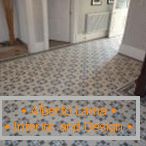
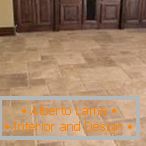
The disadvantage of ceramics is that it remains cool, unless, of course, under it the "warm floor" system is mounted. There is another drawback - the fragility of the material. However, if the ceramic is laid correctly, not allowing for the installation of voids, the risk of its damage is small.
Porcelain tiles
The main characteristic of this material is high strength. It is based on feldspar, granite crumb and quartz as an additive. In addition, two types of clay are used in production. The mixture is baked at high temperature. The finished tile differs in a fine-grained structure, it turns out to be painted to full thickness. On the strength of ceramic granite significantly exceeds the ceramics, its cost is higher.
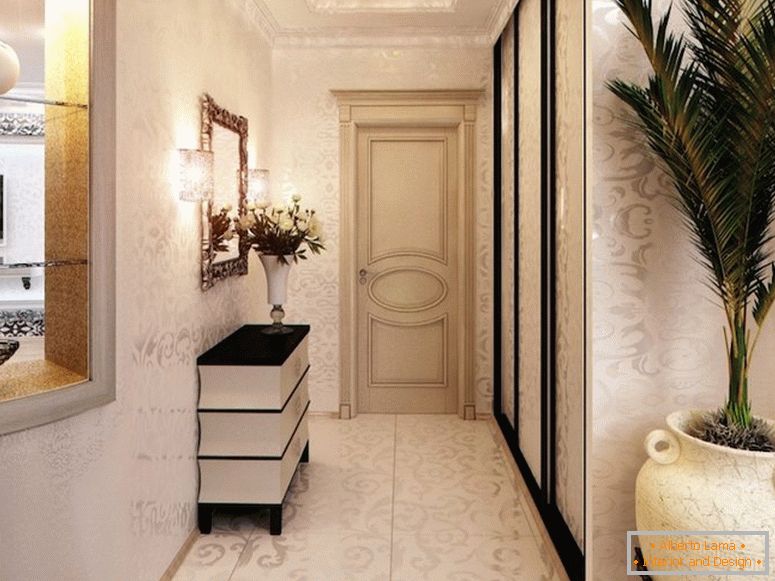
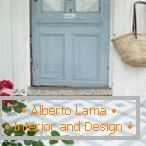
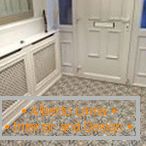
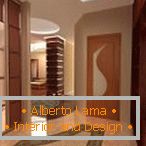
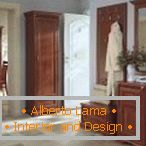
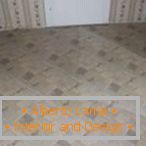
If we compare the color gamut, then the comparison will not be in favor of porcelain stoneware. In appearance it resembles a natural stone. On sale there are only natural shades from light to black. The secret of the success of the material in its durability and strength. It can not be spoiled by anything: neither by water, nor by low temperatures, nor by mechanical influences. Neutral material and to chemical compositions.
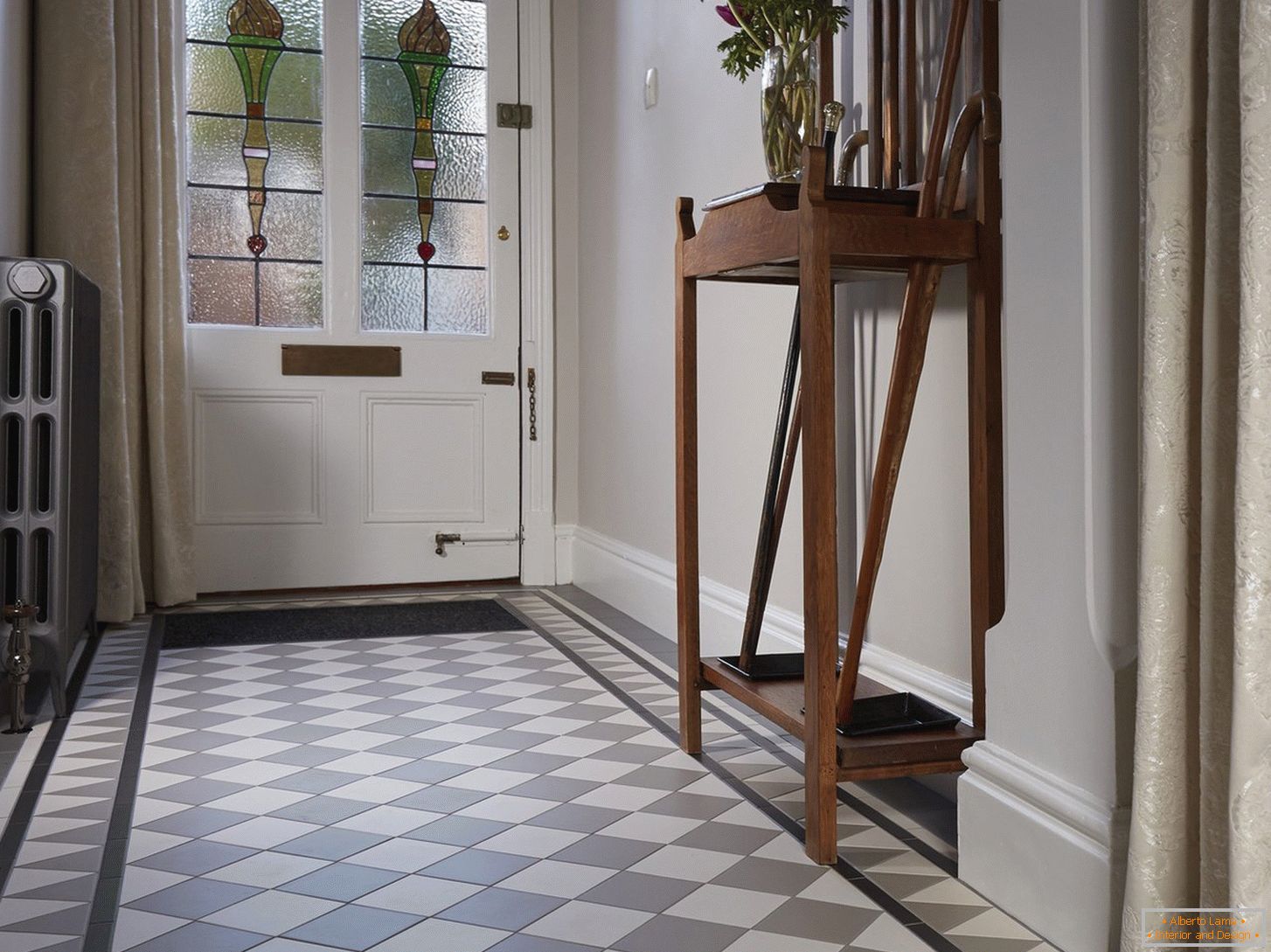
Quartz vinyl cover
This is a universal option, suitable not only for apartments, houses or offices, but also for industrial premises with heavy equipment. The coating has a complex structure:
- PVC base;
- Balance layer of polyvinyl chloride with the addition of reinforced fiberglass;
- Base layer with quartz;
- Decor with imitation of various textures;
- Protective non-slip coating of polyurethane.
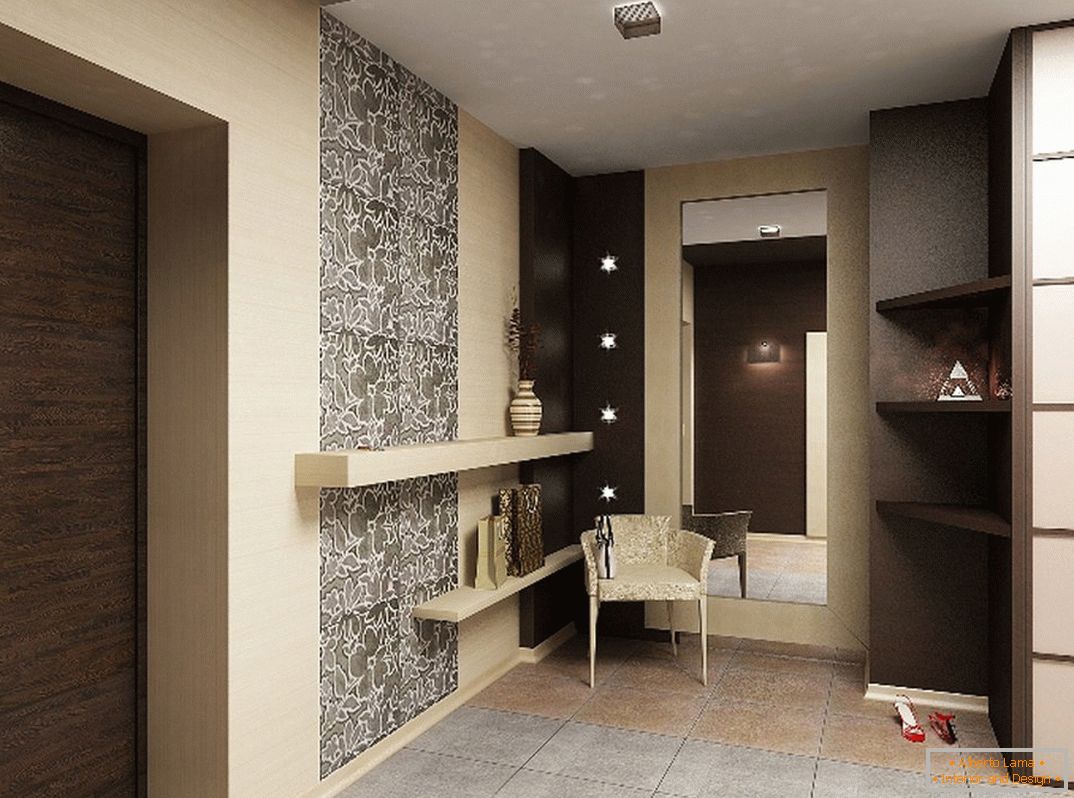
Multilayer does not mean large thickness. It is 1.6-4.0 mm. The thicker the tile, the higher its resistance to wear. The advantages of quartz vinyl tile are:
- Resistance to wear, durability;
- Resistance to external factors. The tile does not burn out in the sun, it is moisture and heat resistant;
- Ease of installation and maintenance;
- High maintainability. Individual elements can be replaced. In this respect, quartzvinil favorably differs from other variants of floor coverings;
- No slip, minimizing the risk of injury. In particular, this is relevant for families where children grow up;
- Warm floor surface;
- Relatively low cost;
- Variety of shades, shapes and textures. If you use quartz vinyl tile in the hallway on the floor, the interior turns out to be unusual.
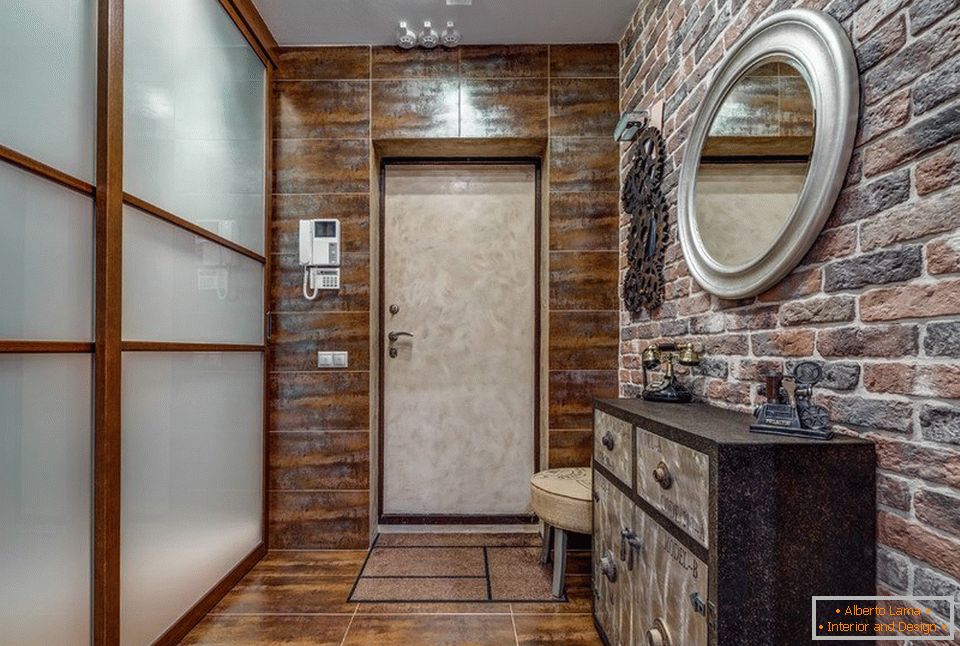
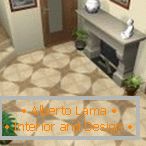
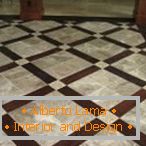

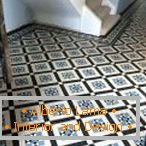
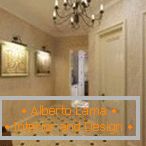
Minus flooring - a large mass and the need for a thorough leveling of the floor surface for laying. Otherwise, all irregularities will not only be visually noticeable, but also noticeable. Lay the cover in such ways:
- Landing on the glue;
- Self-adhesive option (just remove the protective film and mount the product);
- Use of locking connections.
Choosing a tile design
If you like tiled flooring, then for the corridor it is almost ideal. It is convenient to use the tile to delineate individual zones. The performance of the coating is undoubtedly significant, but the beautiful design of the room is no less important.
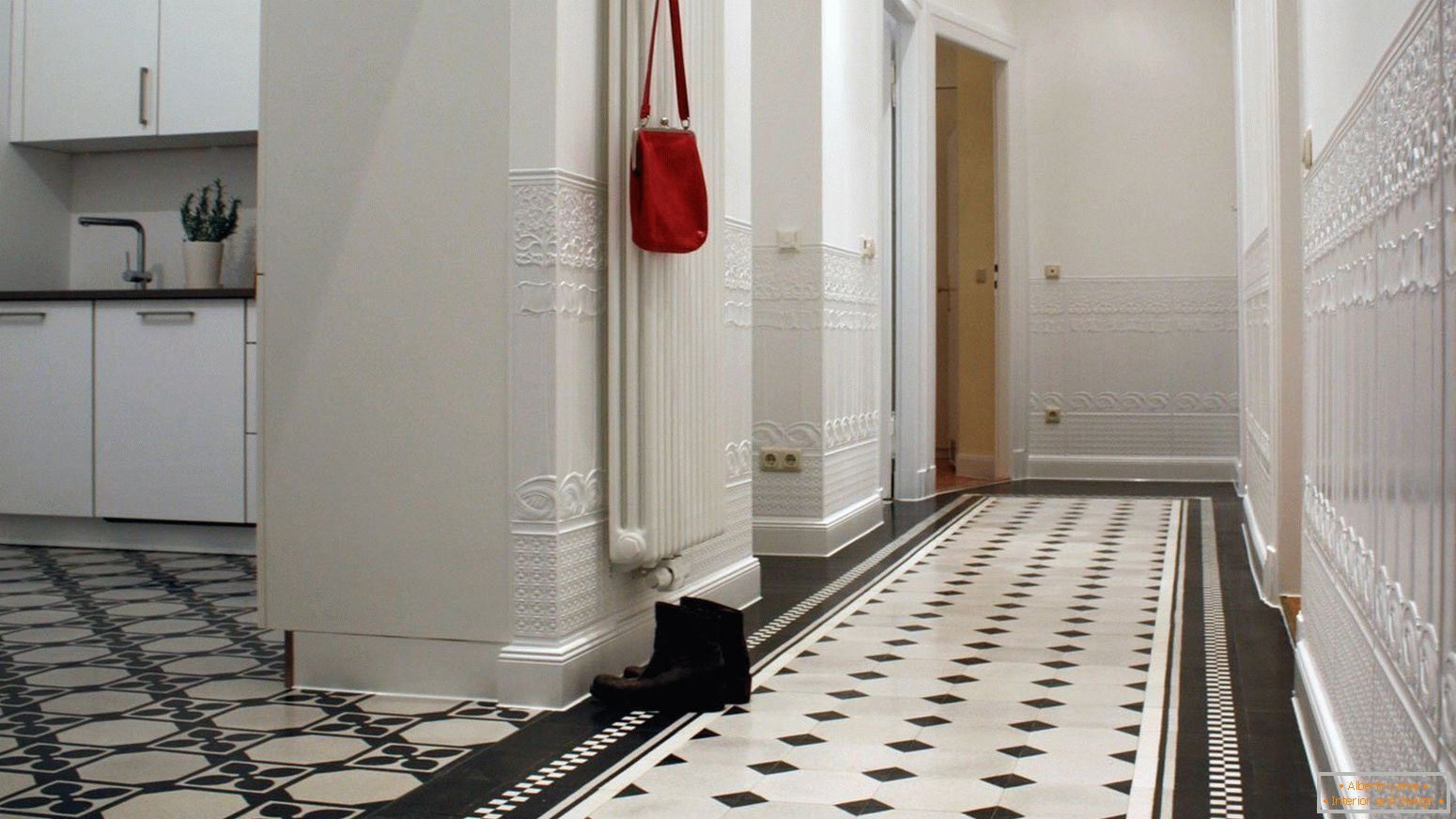
There are several professional tricks that will help you taste the interior of the hall:
- Large blocks help to visually enlarge the room;
- For a spacious room a small tile is not suitable. But it is ideal for a medium-sized corridor;
- For a narrow hallway is best suited design in the transverse or diagonal direction;
- Non-standard looks a combination of several types of tiles, differing in texture, size and color;
- Patterned tiles are beautifully combined with monochrome.
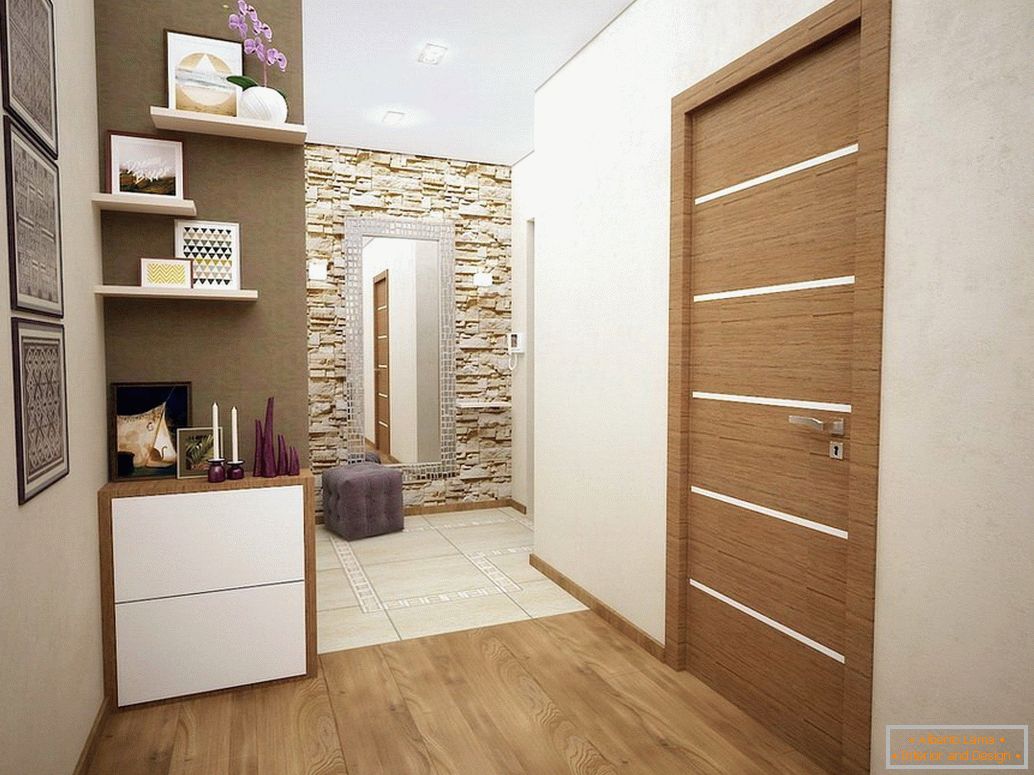
Color variations
The original color options for the corridor - a coating of light pastel colors or white. Tone beige perfectly in harmony with the classic style of the hall: light decoration and furniture made of natural wood. Imitation of a parquet with brown inserts is appropriate. White tiles can not be called practical, but it creates an atmosphere of purity. This is a wonderful background for furniture. Especially beautiful looks tile of a milky shade in a combination to a material simulating marble.
Dark tile is associated with prosperity and severity. In a small corridor with limited square meters, it is undesirable to use it, as it visually reduces and narrows the space. The coating can be different in texture: matte, glossy or polished. In each case, the visual effects are different. Beautifully looks dark tiles with veins, imitating a stone, or with impregnations of a different color.
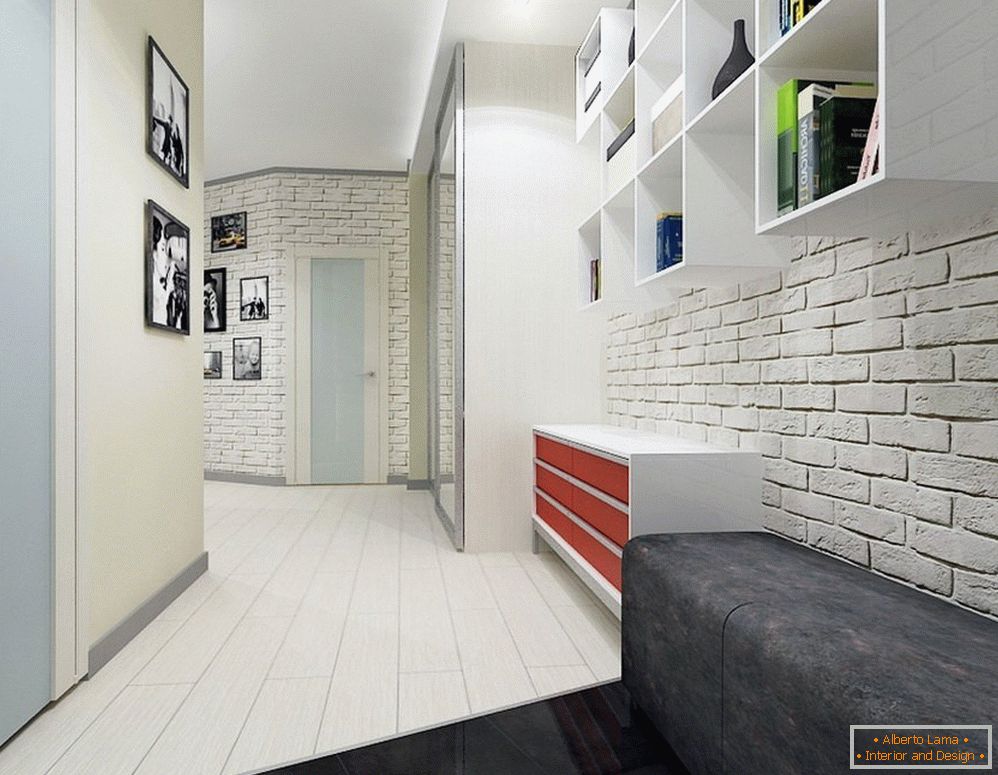
Patterns
The use of patterned tiles for the design of the floor in the corridor is always non-trivial and non-standard. Popular patterns in beige-brown tones, geometric ornaments, imitation of patchwork technique "patchwork". You can make the entire floor patterned or use combination elements with a pattern as inserts. The patterned floor serves as an interior accent, so it is important to decorate the walls with a monochrome one. Otherwise, it will turn out a cutting eye of diversity.
Texture solutions
Glossy tiles, thanks to the reflective surface, visually increase the room of the hallway. Especially noticeable is this effect, if the material is a light pastel shade, and the tile itself is large. Coatings of cold tones are well combined with light furniture of strict design. Glossy materials can be mirror, patterned, imitating precious metals, with sandblasting. It looks good laying squares or rhombuses, diagonal installation with interspersions in the general drawing of small elements. The built-in lighting is suitable as a decoration.
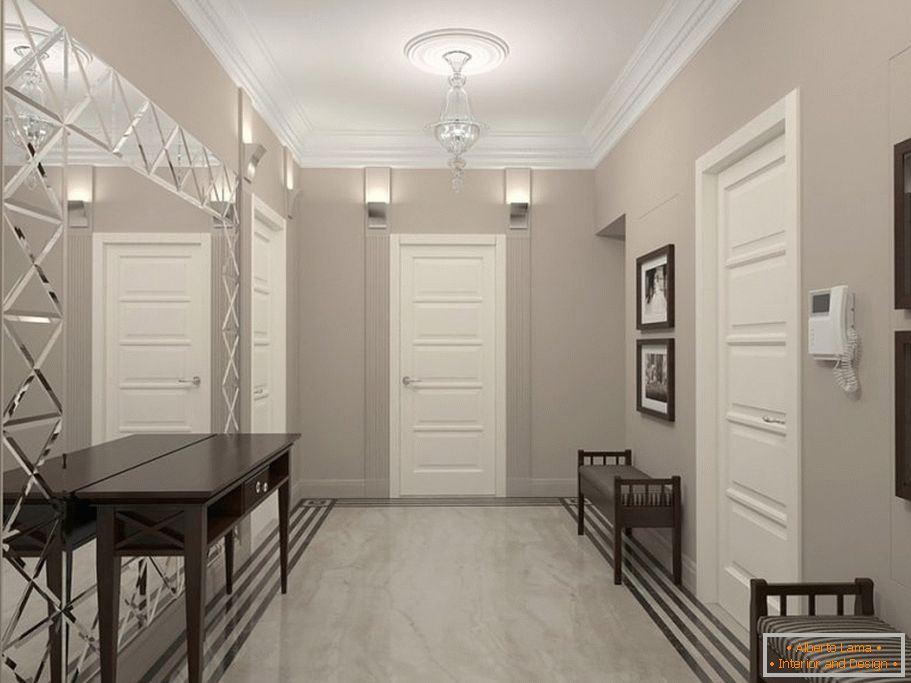
The practicality and safety of non-slip tiles has already been said. These are materials with a fine-grained texture. On such a surface, you can not slip, even if water is spilled onto the floor. The anti-slip effect is created in such ways:
- The application of grooves and notches onto the material, because of which it becomes rough and corrugated;
- Treatment of the glazed surface with chemicals. In this case, a rough film is formed, which prevents slipping.
The pattern on the anti-slip tile can be different: imitation of natural stone, sea pebbles or sand. The dimensions of the individual elements are also different: from mosaic to standard squares or elongated dies.
Read also: Kitchen-vestibule: examples of combined design +50 photo 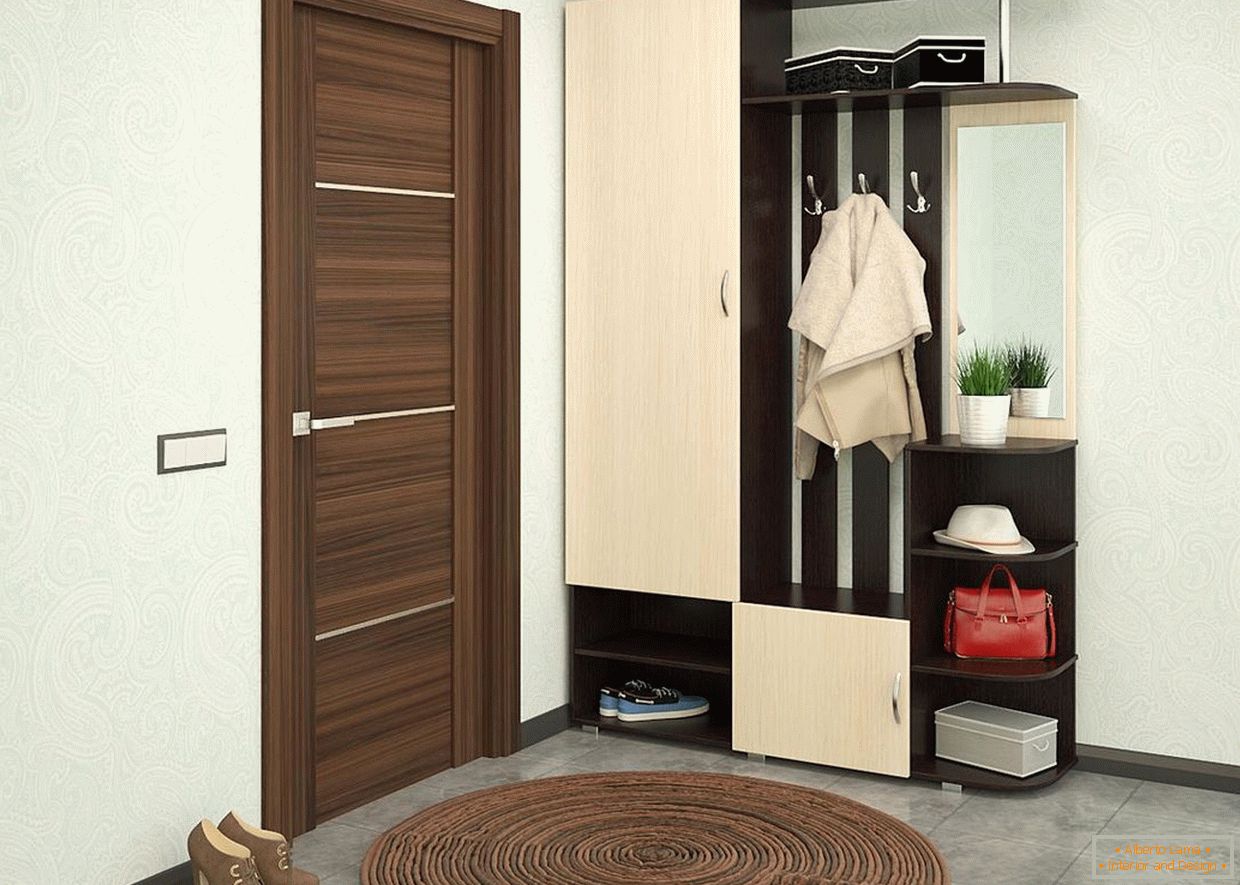
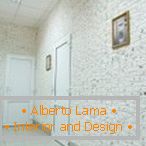
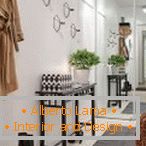
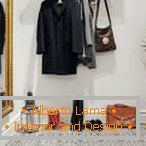
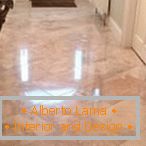
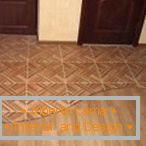
Size and shape
For a spacious hall there are practically no restrictions on the size and configuration of the tiled floor. Beautifully looks mosaic tiles in the hallway of classical design. It can be an intricate ornament, a "carpet" pattern, a rim or a real picture. The mosaic can be monochrome or multicolored.
Особая категория – это плитка, имитирующая древесину. Это может быть копирование фактуры бука, венге, сосны или экзотического палисандра. Color variations разные: от бежевого и грязновато-серого до почти черного. По форме плитка может напоминать реальные паркетные плашки или половую доску. Использование такого необычного материала создает впечатление элитного помещения.
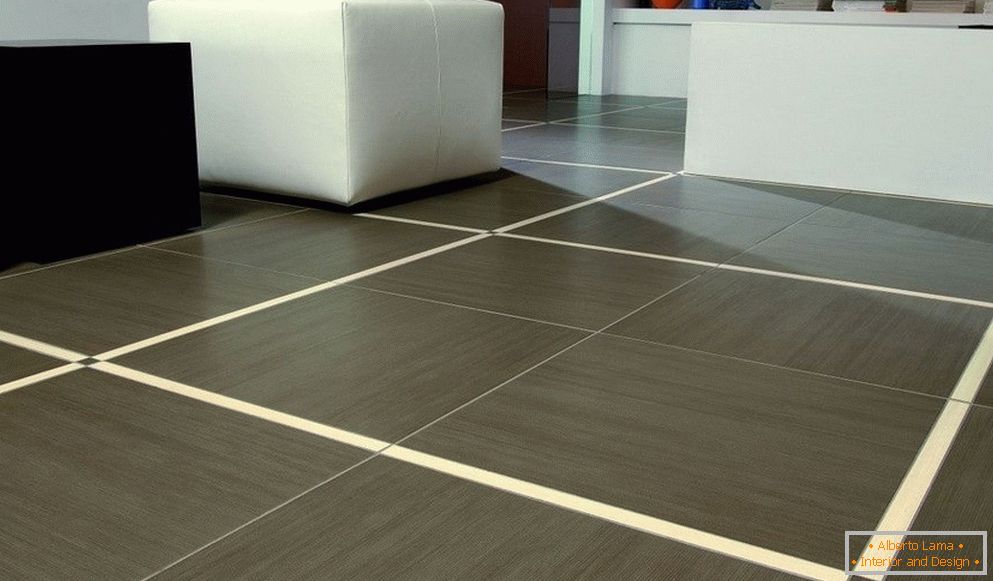
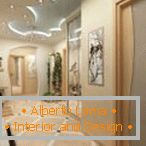
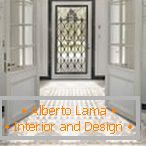
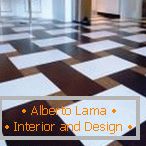
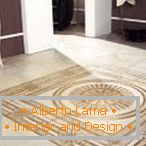
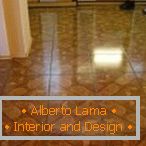
It is interesting to look at the panels - contrasting tiles, forming in the aggregate a single ensemble. The panel can be located directly at the entrance or in the central part of the room. Most of the panels have clearly delimited edges and a complex pattern in the middle, with plant and geometric motifs.
Types of laying
There are such variants of layout:
- Traditional. The tiles are laid in even rows. Typically, for this method of laying, square or rectangular elements are used;
- Diagonal. This way of laying is the most difficult. The most laborious moment is the marking of the diagonal axes. We need certain skills in cutting elements;
- To the outbreak. This brickwork resembles a brickwork. The one-color tile of rectangular shape looks best, but you can use a square one;
- "Herringbone". Externally, this style resembles a parquet. This method is appropriate for rectangular elements with a tree imitation. Not bad looking contrasting tiles;
- Modular. This is a unique opportunity to create an original interior, with the minimum skills of the tiler. Preliminary it is necessary to design a drawing;
- With a shift. It is used when using inclusions of a smaller size.
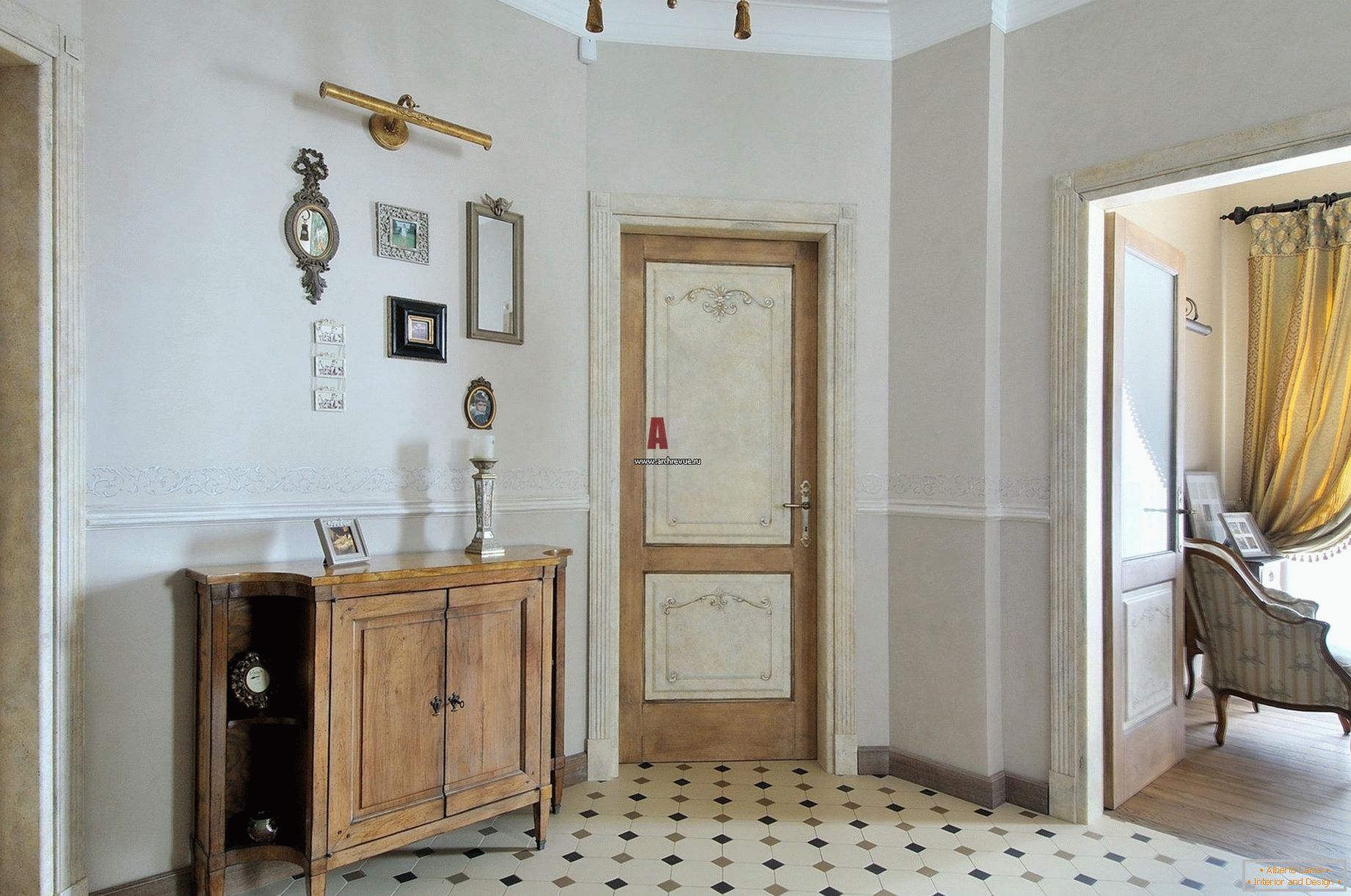
Combination methods with another coating
The use of different types of flooring in the hallway allows you to intelligently zonate the room:
- The shoe area is decorated with tiles, and the rest of the floor is laminated. Practical tiles at the entrance are easily laundered from dirt, and a beautiful warm laminate symbolizes a comfort zone;
- Another option - a combination of tiles and parquet, porcelain stoneware and a parquet board;
- You can play with the same material, using different in the shade and texture of the coating. The effect is just as good.
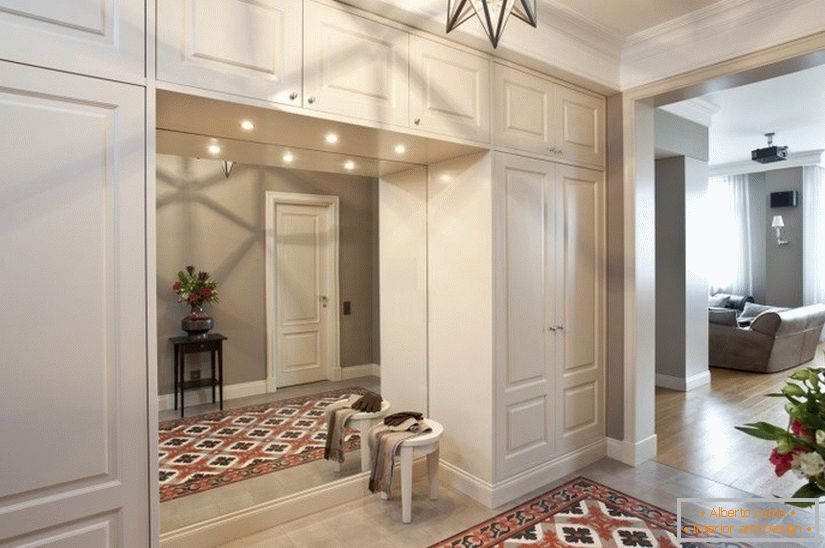
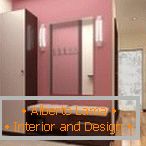
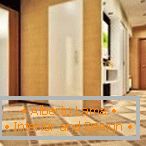
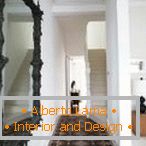
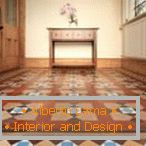
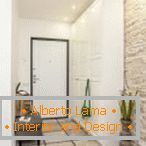
It is important to take care of the safe and aesthetic appearance of the joint with the help of special materials available for sale.
Operation and care of the floor covering
The attractive appearance and longevity of the coating is largely dependent on the care of it. For tiles it is desirable to use special tools. Do not use acid-containing compounds. The tiles themselves do not destroy, and the joints can damage. The only exception is the inter-fiber space, sealed with an epoxy compound. Do not use abrasives, as there is a risk of chips and scratches. Rough surfaces require special care, because they get dirty faster.
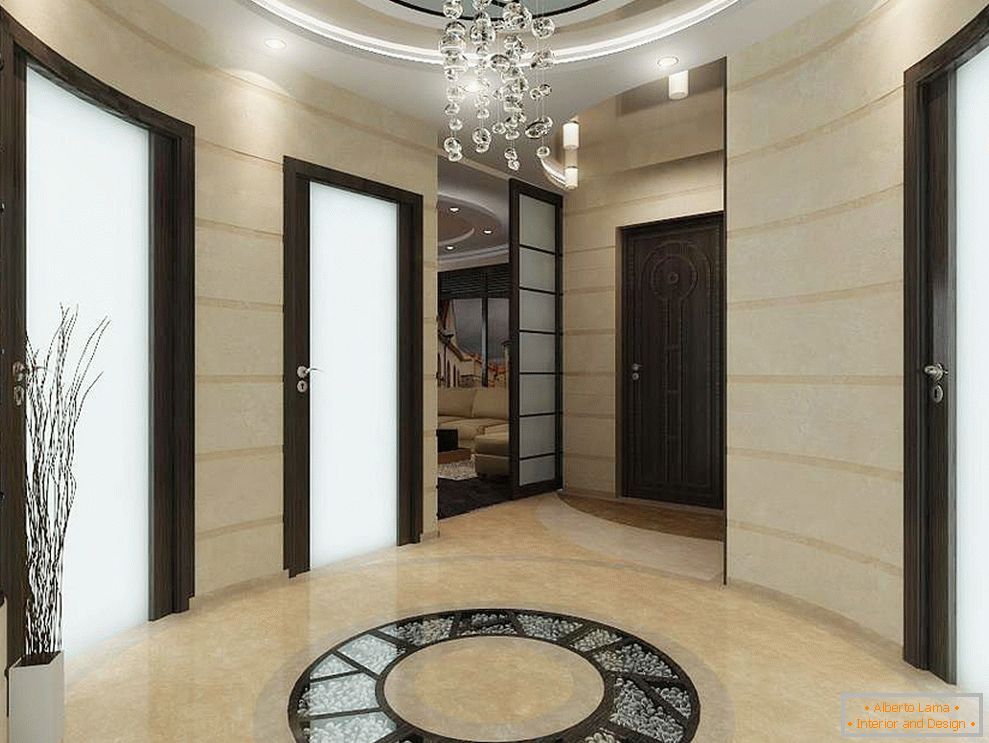
Conclusion
Tile in the corridor is an aesthetic and practical floor covering. You can buy it without difficulty. In the building stores there are tiles of different types. It all depends on the type of room and your taste.

